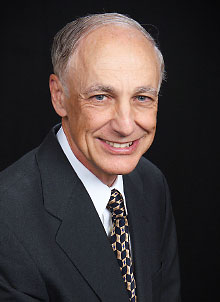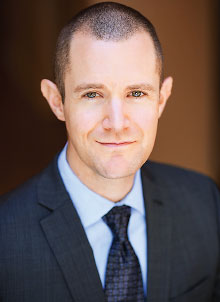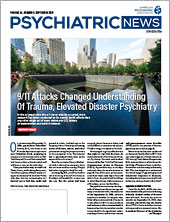The attacks of September 11, 2001, elevated the practice of disaster psychiatry as never before, said Robert Ursano, M.D., director of the Center for the Study of Traumatic Stress at the Uniformed Services University in Bethesda, Md.
“It brought together psychiatry and the principles of public health in the context of a large-scale trauma event,” Ursano told Psychiatric News. He is widely considered one of the fathers of disaster psychiatry. “That joining of psychiatry, public health, and trauma in a context of limited resources and high demand for resources, requiring triage of care, creates the practice of disaster psychiatry.”
Ursano credits past APA President Elissa Benedek, M.D., with helping to jumpstart the modern history of disaster psychiatry and APA’s investment in the practice when she created the Task Force on Psychological Dimensions of Disaster during her 1990-1991 presidential year. It became the Committee on Disaster Psychiatry in 1992.
“That decision, which put disaster psychiatry into the structure of APA, has had profound effects on the ability of APA to be involved and to see over the horizon on the question of disasters,” said Ursano, who was a long-time chair of the committee.
Ursano said 9/11 clarified the distinctions between three major reactions to large-scale disasters: psychiatric disorders, such as posttraumatic stress disorder (PTSD); stress reactions; and health risk behaviors. While PTSD certainly became a focus of identification, treatment, and research, Ursano noted that the most pervasive problem in the immediate aftermath of the attacks was disturbances of sleep.
Knowledge about PTSD up to the time of the attacks was drawn almost entirely from the experience of veterans of the Vietnam War. “That experience didn’t capture how often PTSD can occur or that it has different trajectories over time,” Ursano said. “All PTSD is not chronic. You can have PTSD and recover, there is late-onset PTSD, and there is chronic PTSD.”
The experience of the attacks also helped crystallize the principles of psychological first aid, outlined in a 2007 article by Ursano and colleagues titled “Five Essential Elements of Immediate- and Mid-Term Mass Trauma Intervention: Empirical Evidence.” Those principles are a sense of safety, calming, self- and community efficacy (the sense of mastery over circumstances), connectedness, and hope.
Joshua Morganstein, M.D., assistant director of the Center for the Study of Traumatic Stress and chair of APA’s Committee on Psychiatric Dimensions of Disasters, said these principles and other lessons from 9/11 have enabled the center to develop principles of public health leadership and interventions that can be tailored to the unique aspects of each disaster. “Evidence has shown that enhancing a sense of safety, calming, self- and community efficacy, social connectedness, and hope can reduce disaster-related distress, enhance well-being, and improve functioning of individuals impacted by disasters,” he said. “This framework continues to inform our approach to protecting public mental health after disasters, including COVID-19 and others.”
Morganstein said the issue of perceived safety became an area of increased focus in the wake of 9/11. “We also better understand that most people, even those who have difficulties along the way, will ultimately be OK. Many will even experience an increased sense of their ability to manage future stressors.”
Finally, the attacks clarified how the impact of disaster unfolds over time. “Early community cohesion and the hope of all things being restored and made whole again are often followed by periods of frustration, anger, and diminished hope as stress and losses mount,” Morganstein said. “Eventually, many people find a way to make meaning of the difficulties and move forward. Anticipating and planning for these frequently observed ‘phases of disaster’ allow resources to be allocated more effectively and tailored interventions to be delivered in a more timely manner.” ■
“Five Essential Elements of Immediate and Mid-Term Mass Trauma Intervention: Empirical Evidence” is posted
here.


